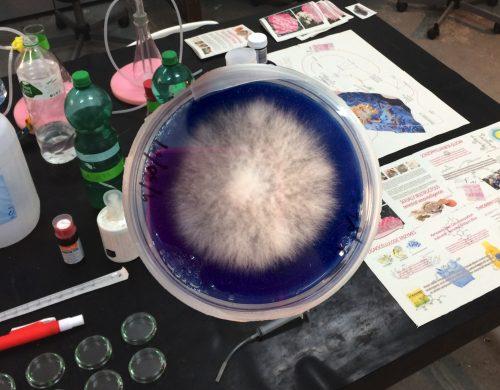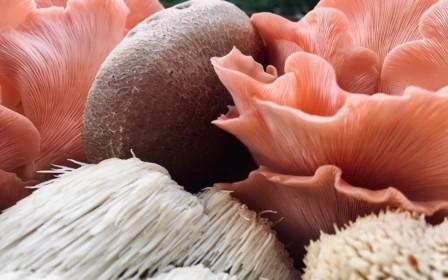A two-day workshop led by Mary Maggic as part of Kernikova’s MyCoBiont ExP takes place on 16. – 17. 9. 2021 at BioTehna + Vivarium (Ljubljana, SL).
Petrochemical, agricultural, and pharmaceutical industrial activity have permanently altered the planet through the widespread presence of xenoestrogens, or endocrine disrupting compounds. Various molecules and synthetic hormones have hormone-mimicking and displacing properties, and are able to enter and communicate in the molecular semiosphere that we share with almost all animal taxa. While these molecules alienate us from our prescribed notions of ‘normal’ and ‘natural’, and our bodies are stolen by capitalist interests, this alienation joins us in a shared species vulnerability as we all live-with and become-with these all-pervasive toxicities.
Several species of fungus are known to be able to break down these toxicities. One species of the white-rot fungus, Schizophyllum commune, grows on almost every continent in the world, has over 28,000 sexes, and has a variety of human applications – cheese-making, prevention of thrombosis, boosting immunity, aiding against cervical cancer, and even petroleum extraction.
This workshop uses a similar species of Oyster mushroom to imagine new cross-species toxic entanglements. Participants will be asked to bring a household product that contains a xenoestrogen ingredient (plastic bottles, cosmetics, soaps, or even their own urine) from which the hormones will be extracted using some DIY techniques. We will then create a xenoestrogen cocktail and feed them to the Oyster mushroom which will be grown on Petri dishes stained with Remazol blue, a synthetic fabric dye. Participants will check their growth over time to observe how the mushrooms respond to the toxic residues of human industrial capitalism.

